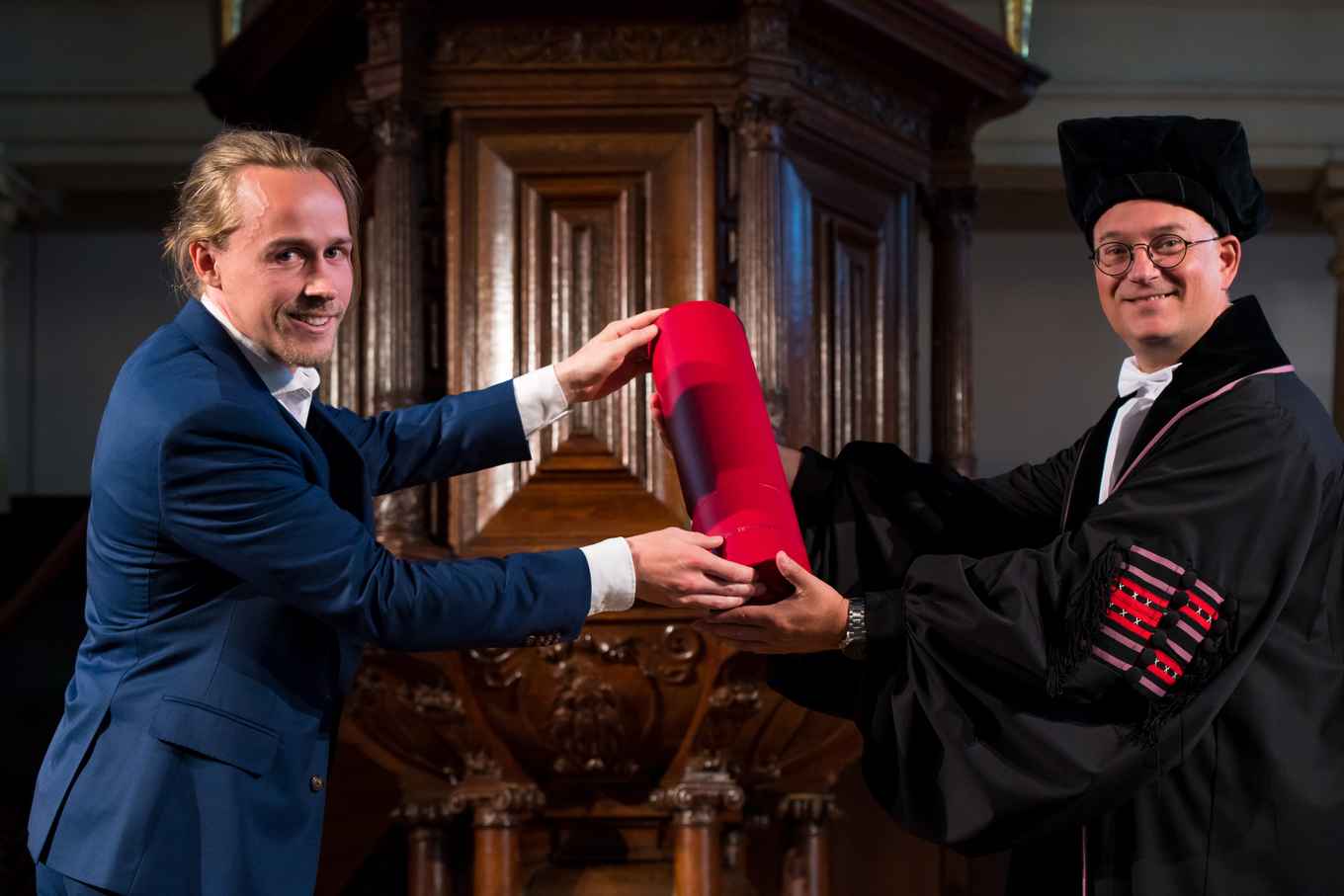Kaj van Vliet is first candidate to obtain PhD in HRSMC excellence track
2 October 2020

To prepare talented chemistry students for a scientific career, HRSMC offers a dedicated excellence track. It is characterized by a strong integration of theory, spectroscopy and synthesis, and eligible to only the best 10 per cent of chemistry students at the HRSMC partner universities. The track is currently named 'HRSMC Class of Excellence' and was formerly offered as 'HRSMC Excellence Master Sustainability: the Molecular Approach'. A crucial part is the preparation of a PhD research proposal. Until 2017 the best proposals were awarded with an actual PhD position, financed through the Graduate Programme of the Dutch Research Council NWO.
A great feeling
In 2015, Kaj van Vliet was among the first candidates that saw their PhD proposal being honoured by the HRSMC expert panel. In early July of this year, he actually obtained his PhD with Prof. Bas de Bruin of the research group Homogeneous, Supramolecular and Bio-inspired Catalysis (Homkat) at the University of Amsterdam. We asked Kaj to look back and tell us about his experiences.
'It was a great feeling to start on research that really felt my own,' he says. 'At the same time, it turned out to be quite a challenge. The field of photoredox catalysis that I had gotten myself into turned out to be rather competitive. I had to compete with established groups of David MacMillan from Princeton, Corey Stevenson from Michigan and Tehshik Yoon from Winsconsin. That was difficult, in particular given the fact that in Amsterdam we were just starting on photoredox catalysis and our knowledge was limited.'
Van Vliet struggled, "as does probably every PhD candidate", but eventually he published a paper on his subject in the Beilstein Journal of Organic Chemistry. 'I also created a new iridium complex suitable for photoredox catalysis. This brought me to the SLS synchrotron in Switzerland where I had the opportunity to perform time-resolved X-ray spectroscopy. Again this led to a publication, this time in Photochemistry and Photobiology. It was a pity I could not actually use this complex in catalysis.'
Very nice work
Halfway his PhD Van Vliet decided to focus on a theme that was closer to the knowledge of the group: metal-catalyzed nitrene transfer reactions. 'This resulted in very nice work leading to a paper in the Journal of the American Chemical Society and a review in ACS Catalysis. Of course, many projects and experiments ended in failure. So it did not always feel like it would become a success. But that is also a common aspect of a PhD project.'
Van Vliet expresses his gratitude for the opportunity to work in the Homkat group, the supervision of Prof. Bas de Bruin, and the help from Prof. Fred Brouwer (UvA) and Prof. Célia Fonseca Guerra (VU Amsterdam). Having brought his adventure to a good end, the final episode was pretty strange: 'The Wuhan food market sent a pandemic across the planet, causing disruption everywhere. I hoped that I could have my PhD ceremony in the Aula, respecting the RIVM rules but with a fair number of guests. Unfortunately this turned out to be not possible, so on 3 July I had to defend my thesis from behind a computer screen. Bas took the effort to come all the way from his hometown Didam to my place, so I received my HRSMC certificate that same day! I'm glad that two weeks ago we could have a short formal ceremony so that I now also - finally - have my PhD certificate.'